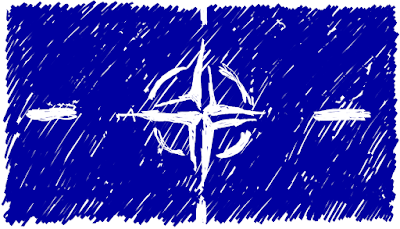Sometimes, revolutions and coups occur. These unconstitutional seizures of power violate the rule of law and should always be discouraged. However, when such a coup does occur, the international community eventually accepts it as a fait accompli.
In the Cold War, many such violent transfers of power occurred but typically the resulting government would be backed by the US or USSR. In some other cases, such as that of the Khmer Rouge in Cambodia, it was China that provided most of the legitimacy to the new regime.
However, on very rare occasions, an uprising would not be backed by any of the superpowers. Examples are the Islamic Revolution in Iran in 1979 and the rise of the original Islamic Emirate of Afghanistan to power in 1996. The rise of the Islamic Emirate of Afghanistan back to power in 2021 is another such event, although Moscow and Beijing were not bothered by the previous pro-Western regime's fall.
Refusing to accept illegal takeovers
Sometimes, the rise to power of a faction will be met with rejection by the supreme body of authority in the world - the United Nations Security Council. The Security Council, representing the victorious countries of the Second World War, provides a kind of "might makes right" verdict on a dispute where the right cannot otherwise be established. It includes the rival Russians, Chinese and Americans and can often be split and indecisive.
Based on the strictest adherence to the rule of law, you would never recognise any unconstitutional seizure of power as valid. It is the duty of the Security Council to condemn any and all violent takeovers and attempt to reinstall the previous regime. Unfortunately, this is not always practical.
In Ukraine in 2014, crowds used violence to overpower security forces in Kiev and bring opposition politicians to power, ostracizing and kicking out the elected government. The former president fled to Russia, but rather than continue backing this president, Russia accepted the new regime's rise to power as a fait accompli. Despite the hostility between Kiev and Moscow, Moscow does not say the Ukrainian government is illegitimate. Its beef with the country is about the treatment of ethnic Russians in Ukraine, not the validity of a government that rose to power illegally.
This brings us to the topic for today.
Who rules Yemen?
In Yemen, from 2014-2015, almost the exact same thing was happening as was taking place in Ukraine. In this case, the offending group that took control was Ansar Allah, also known as the Houthis. The president of the country, in this case Abdrabbuh Mansur Hadi, fled not to Russia but to Saudi Arabia.
Rather than accept the defeat of their disgraced former favourite as Russia did in Ukraine, Saudi Arabia instead formed a military coalition to lay siege to Yemen in an attempt to reinstall the kicked-out president. This is the reason for the ongoing conflict in Yemen.
Imagine if, rather than accept what happened in Ukraine in 2014, Russia instead assembled the alliance of post-Soviet states, the CSTO, to invade Ukraine and restore the former president Viktor Yanukovych to power in Kiev. Imagine further, that this resulted in nearly a hundred thousand deaths, total destruction of infrastructure and outbreaks of cholera, and that Russia was still attempting to reach Kiev, being continuously defeated in the process. That is what Saudi Arabia is doing in Yemen.
The UN Security Council, including Russia, despite it contradicting the way it accepted the unconstitutional seizure of power in Ukraine, still recognises the discredited former regime of Yemen as the legitimate government of the country.
Peace through accepting reality
The Houthis should not have seized power in Yemen, but they did. This reality would be accepted by pragmatists and if the Houthis continue to prevail, it will eventually be accepted. The UN has a duty in this case to stop propping up a defeated regime, and to withdraw recognition of Hadi. The Houthis, like the Taliban, are the rulers of the country they rose to power in whether you like them or not. They have been in power for multiple years despite an international coalition against them. They stood the strongest tests any regime could be subjected to, and are the right ones to hold accountable for the wellbeing of that country.
Attempting to restore an old regime, possibly at the cost of killing everyone in the country, is insanity. We recognise all kinds of governments that we don't personally support, and that is what is needed here.












